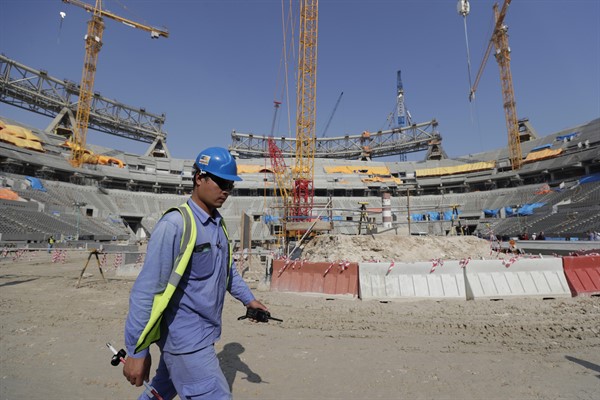Last week, the draw for the 2022 FIFA World Cup stoked the excitement of football fans worldwide. But it also reignited debates about the appropriateness of the event’s host, Qatar, which has frequently come under fire for human rights abuses.
Gareth Southgate, the manager of the English national football team, reportedly hosted meetings with his current squad in order to discuss how the team could show its opposition to Qatar’s human rights abuses. Unsurprisingly, news of this meeting was poorly received by the CEO of the Qatari partnership that is organizing the tournament, Nasser al-Khater, who urged Southgate to “pick his words carefully.”
Full disclosure: I am not a football fan and am not one of the millions of people impatiently counting down the days to the World Cup, which is scheduled for November. However, Qatar’s hosting of the tournament will have consequences that reach far beyond the world of football—and will have a particular impact on people under the age of 30.

